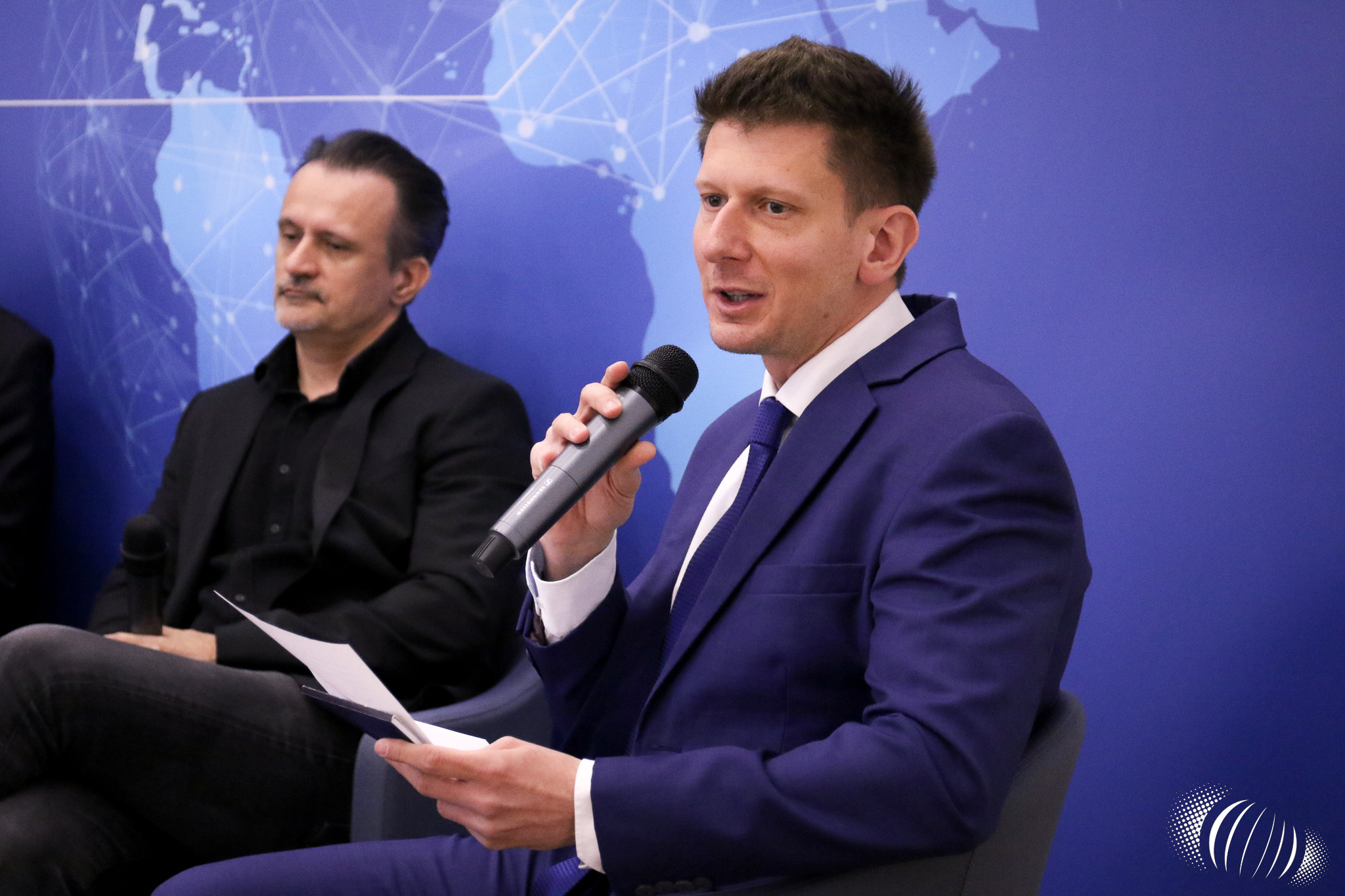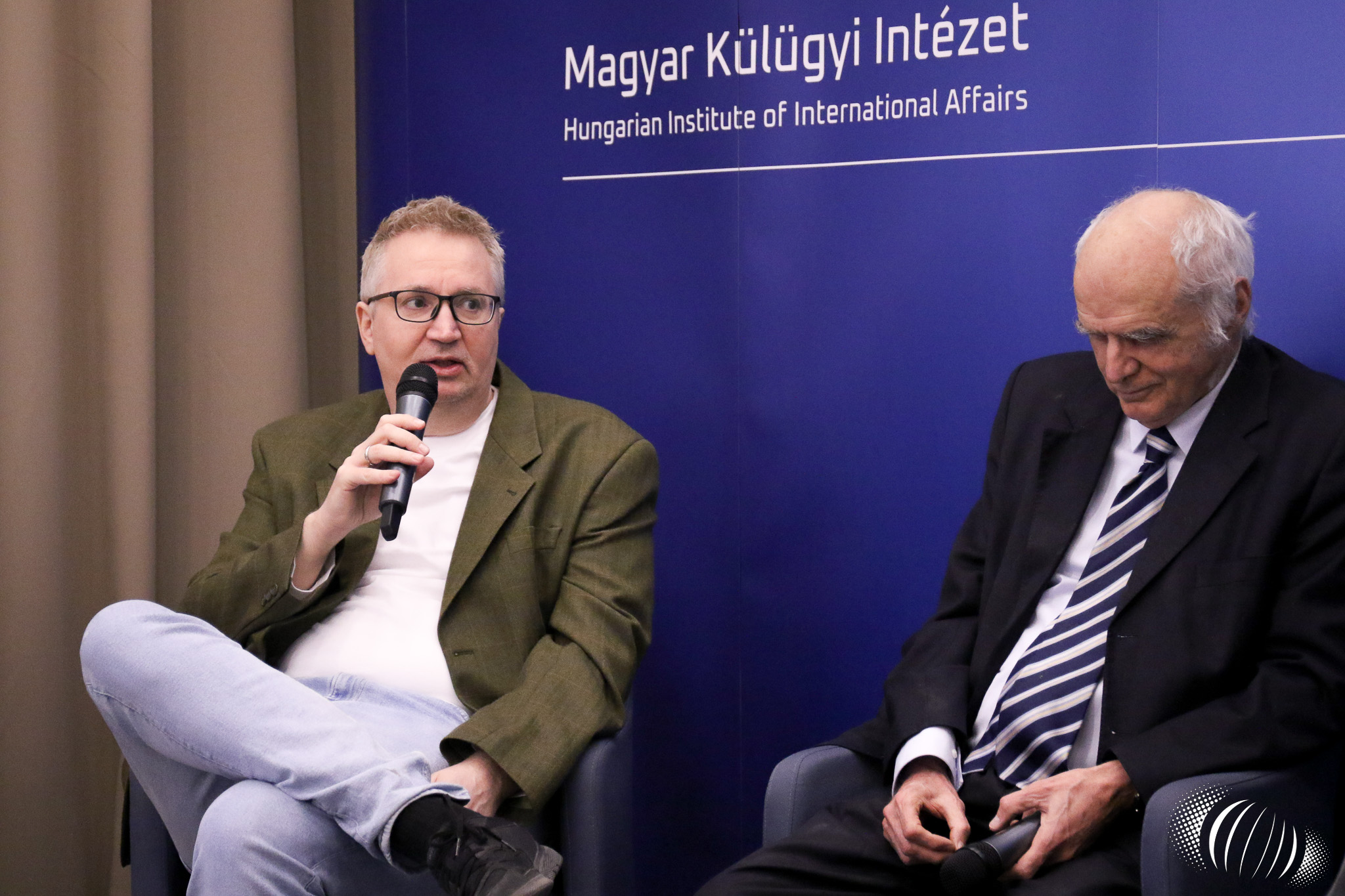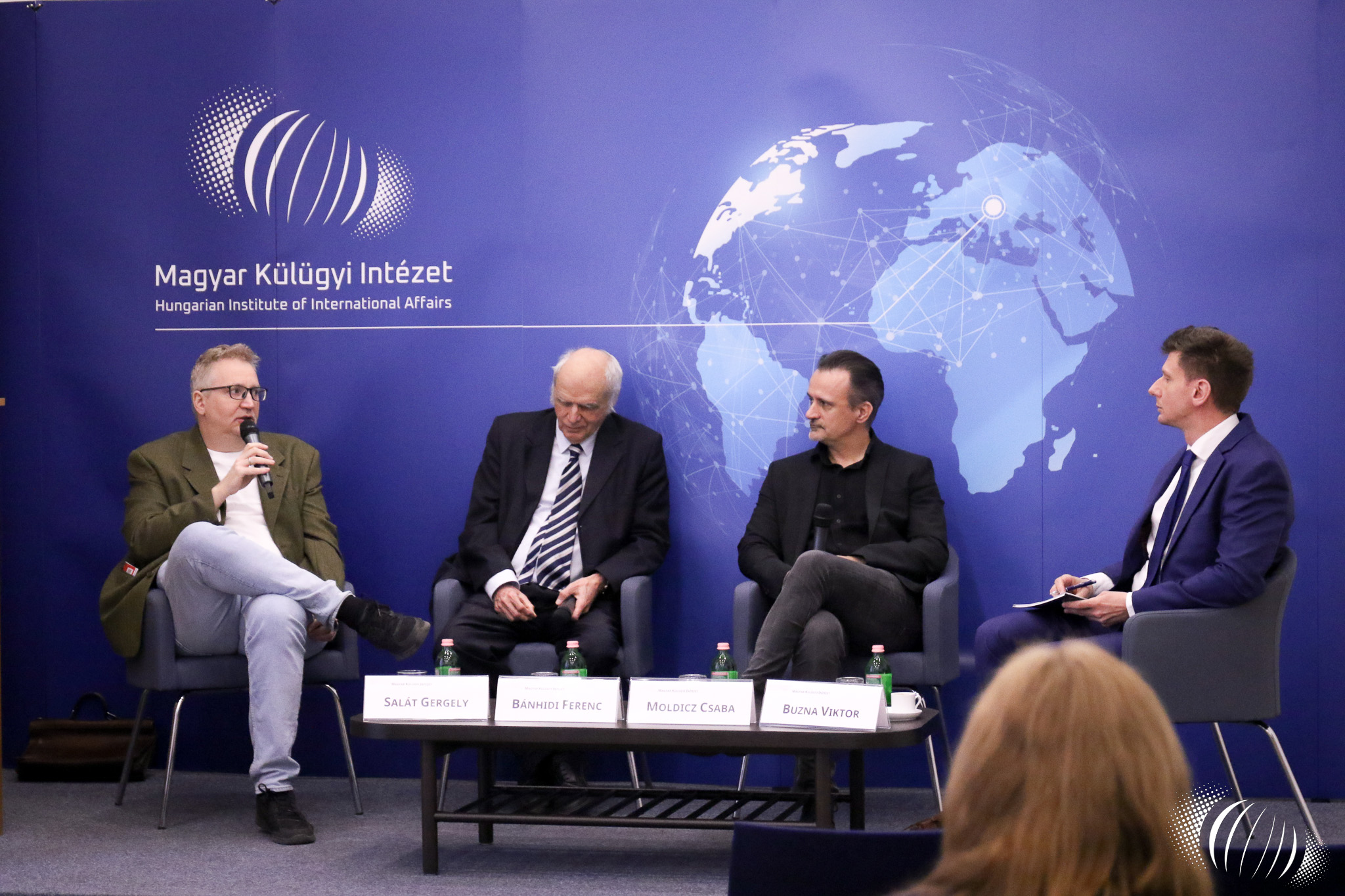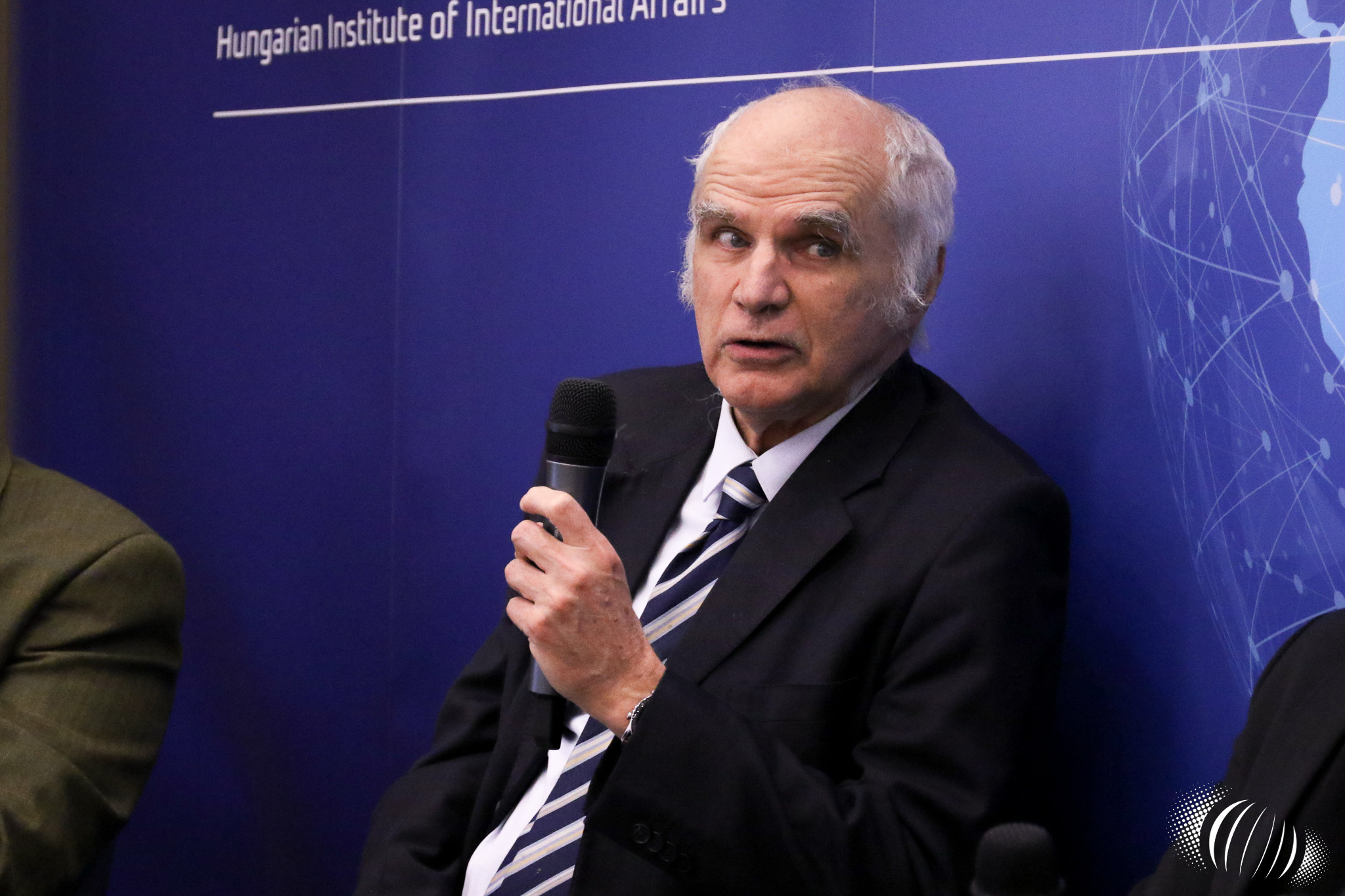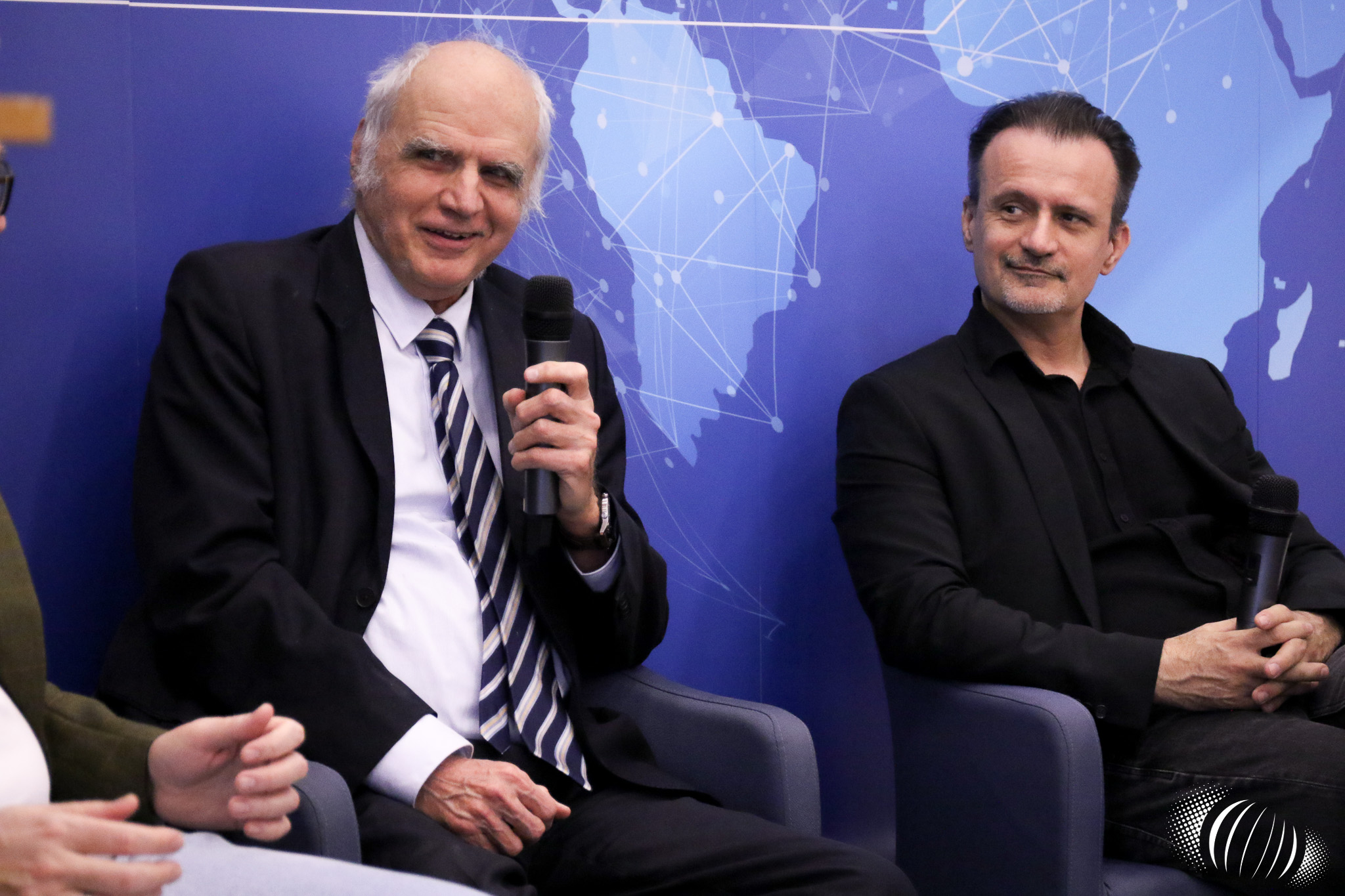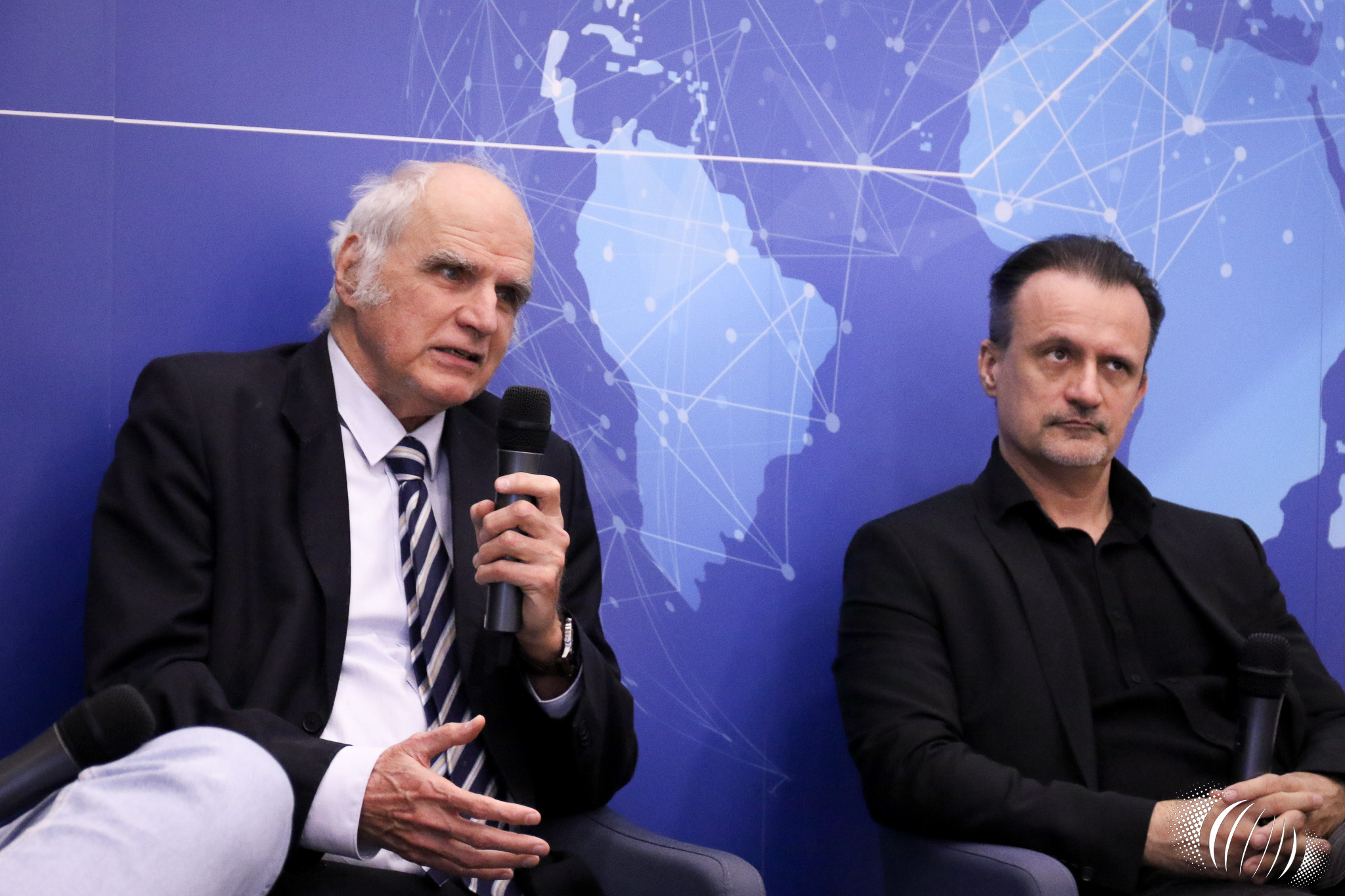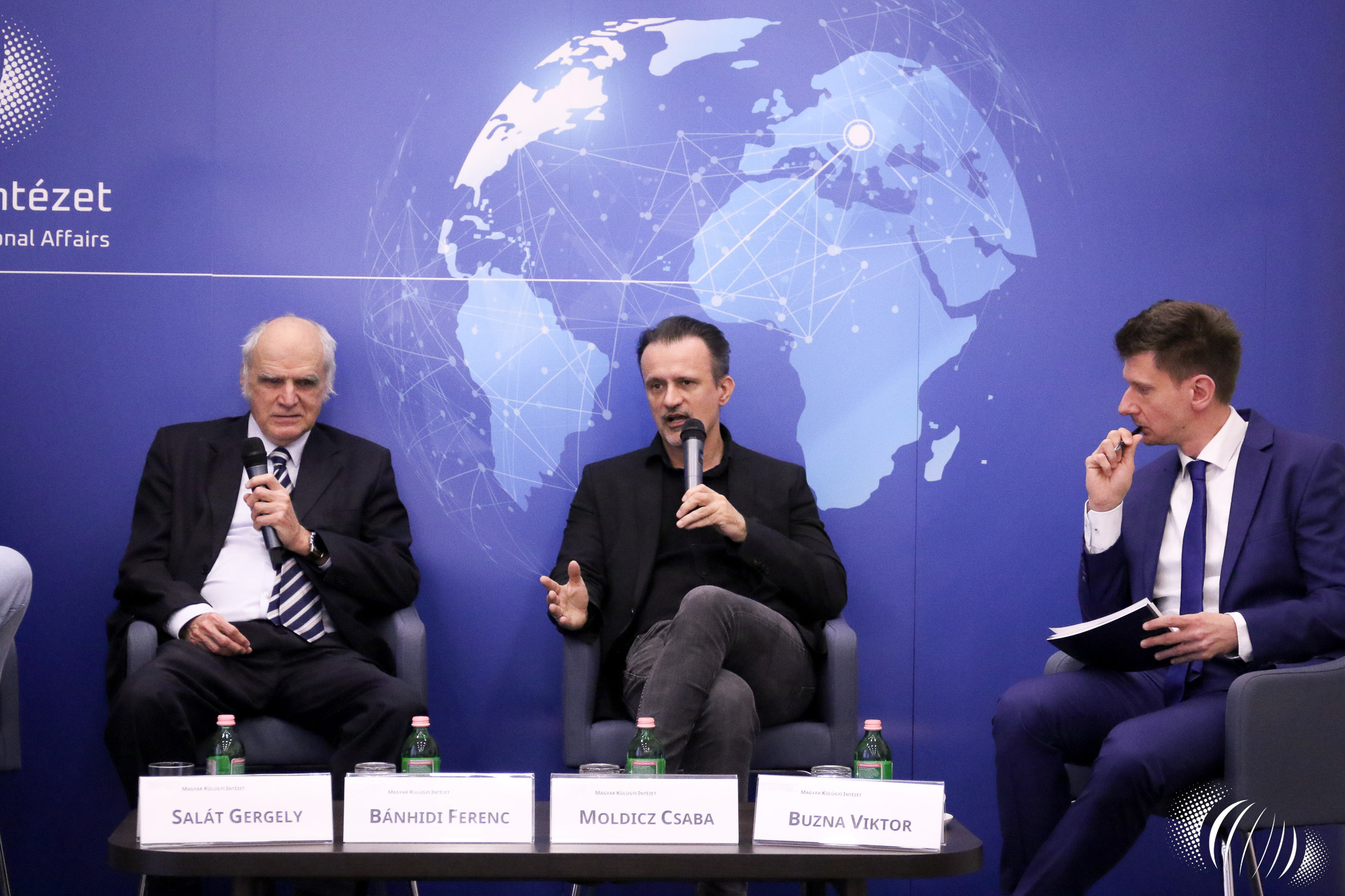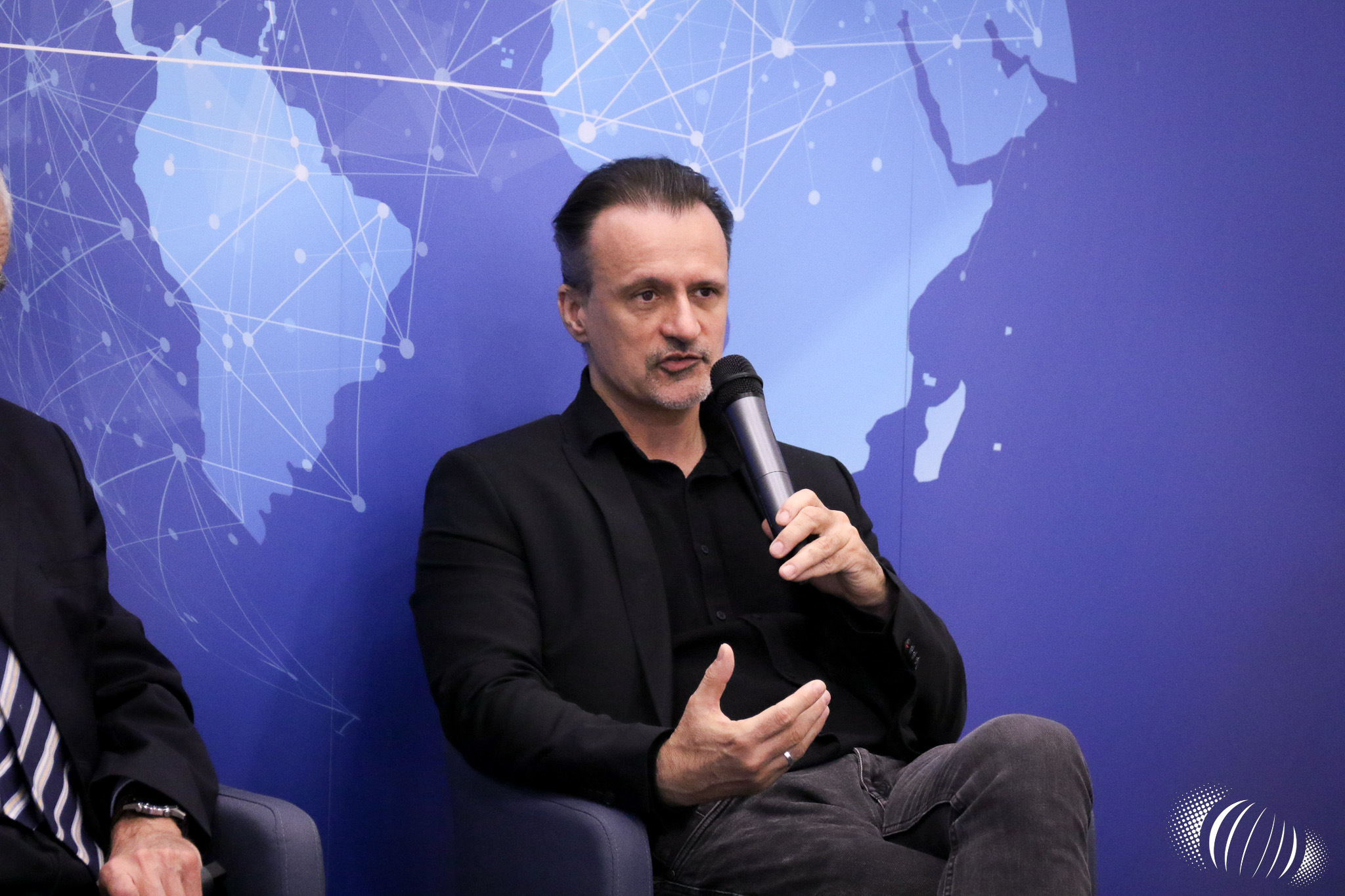The Hungarian Institute of International Affairs (HIIA) hosted a roundtable discussion entitled “What Does the Draghi Report Mean for EU Competitiveness?”, featuring Ákos Mernyei, Ambassador and Presidential Advisor at HIIA; Philip Pilkington, Senior Research Fellow at HIIA; and Géza Sebestyén, Head of Economic Policy Workshop at MCC.
Ákos Mernyei emphasized that the Draghi Report contains a number of highly important observations. Among them, it notes that out of the world’s three leading economic powers—the USA, China, and the EU—the EU is the most open, has the highest energy prices, and is the least prepared to defend itself. Crucially, the report recognizes that decarbonization cannot stand alone—it must take industrial policy into account. The report’s reflections on defense policy and enhancing Europe’s defense capabilities also deserve special attention.
Reflecting on the ongoing global economic realignment, Mernyei added: “We must recognize that Europe is in danger. However, it is still less risky to act as an independent pole in the global economy and strive to remain economically neutral—trading with all parts of the world—than to become bloc-based. If we opt for the latter, Europe will find itself boxed in and, due to its limited resources and raw materials, will face more and increasingly difficult bottlenecks.”
Speaking on European competitiveness, Philip Pilkington pointed out: “The green agenda has now become so comprehensive that it appears to offer solutions to virtually every problem. The Draghi Report claims that with the adoption of green energy, Europe will reduce energy costs. Yet every economist should know that we support green energy precisely because it is more expensive, not cheaper, than fossil fuels. From an economic standpoint, the energy policy proposed in the Draghi Report does not hold up.
Moreover, the report suggests introducing protectionist measures to boost competitiveness—this contradicts every international trade principle taught even at the undergraduate level. If we impose tariffs on the European car industry, Europeans will be forced to buy lower-quality vehicles. They won’t have the option of purchasing new, high-quality Chinese cars at affordable prices and will have to settle for second-rate alternatives. This means companies like Volkswagen and Renault will lose their international market share. These European brands will no longer be seen in places like New Delhi. That’s precisely why the auto industry opposes tariffs.”
According to Géza Sebestyén, it is perfectly clear that Europe is lagging in terms of competitiveness—and digitalization is another area where Europe is underperforming. “Hungarians can also agree with this part of the report. It’s crucial to understand that we need to do things that actually work, because we’re talking here about European competitiveness—or rather, the lack thereof.”
“If we look at green industries—electric cars, batteries, solar energy—three key sectors of the green transition, Europe is nowhere to be found. We’re sacrificing our traditional industries in the hope of becoming world leaders in the green transition, yet we’re not even on the map. On top of that, we’re also giving up our existing sectors. All our good engineers are going to China because they see no future here,” he added.

